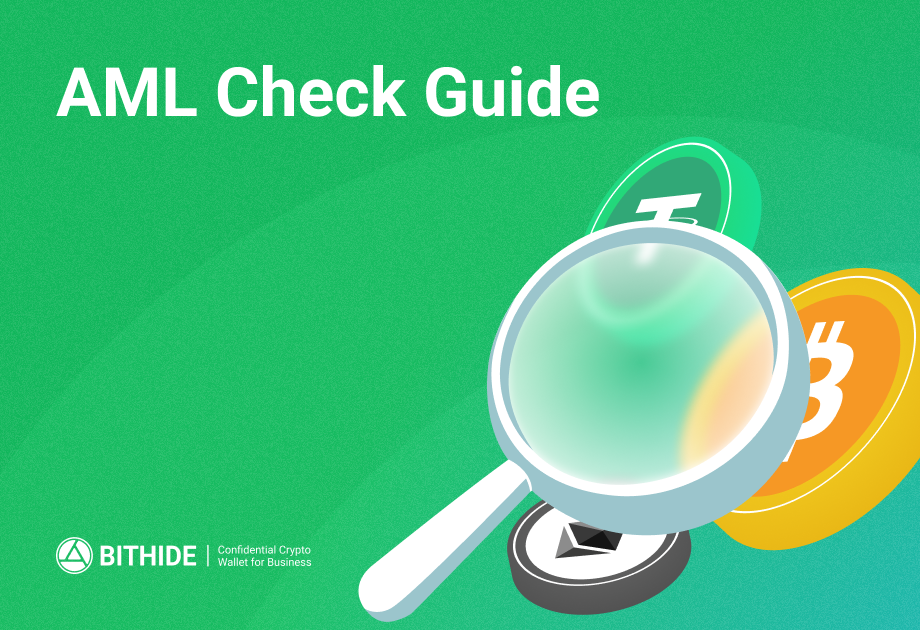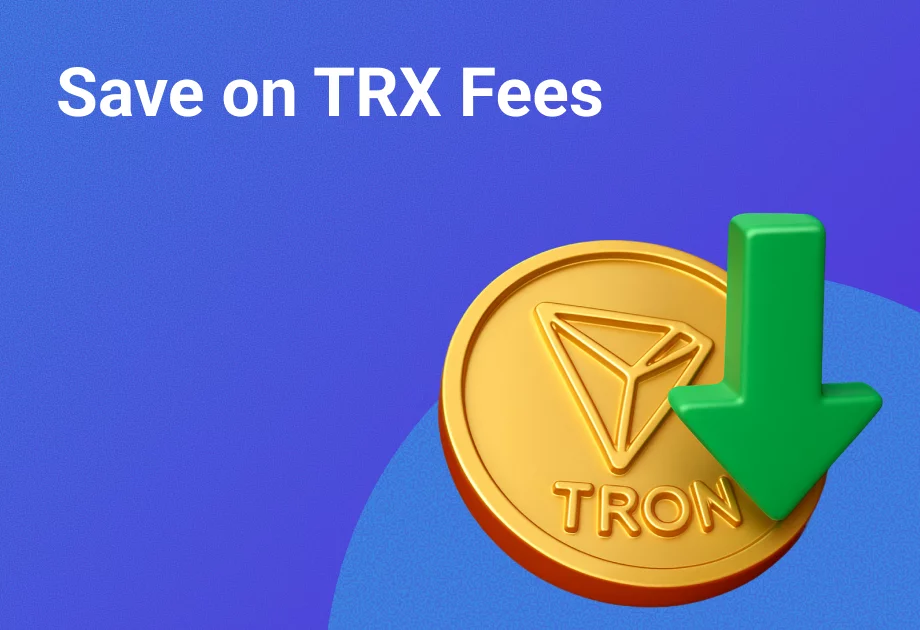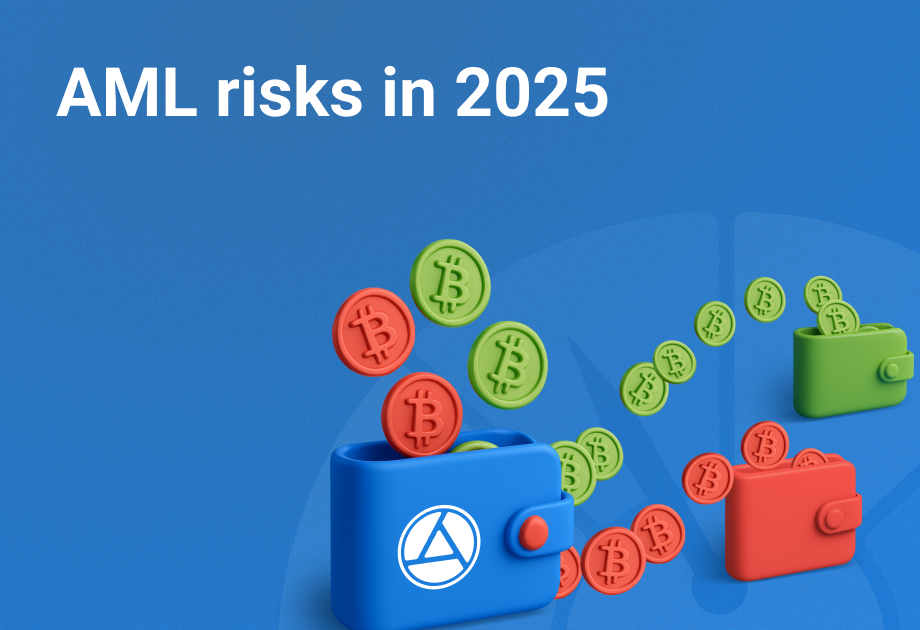Guide on AML Tools: How to Protect Your Crypto from Freezes
Everything you need to know about AML checkers.

Consider you have completed a project successfully, get paid in crypto, and the next moment, your wallet is locked, and your savings are all on ice. You have been unknowingly receiving high-risk cryptocurrency associated with suspicious activity.
It is not the only case. According to the 2025 Crypto Crime Report, more than $1.3 billion of digital assets were frozen in 2024, and 1 in 20 transactions were executed with money laundering or fraud-marked addresses. So far, more than 2.5 billion USDT have been frozen by Tether. The amount increases daily.
This article will look at how the AML (anti-money laundering) screening process operates, what is the best AML check software, and how you can make free AML checks online.
Why Anti-Money Laundering Matters in Crypto
AML is an abbreviation of Anti-Money Laundering. It is a group of measures, legislation, and technologies that are aimed at identifying and preventing the transfer of funds that were acquired illegally. AML regulations in the crypto world are not only applied by banks or governments, but also by the centralized exchanges, custodians, and even by some DeFi platforms. These precautions comprise:
- Identity check (KYC).
- Transaction surveillance.
- Wallet risk rating.
- Data exchange between services according to the Travel Rule.
Even the most “decentralized” crypto projects must have an idea of the origin of money and its risks. Why? Because nobody wants to deal with dirty money, whether it is a large-brand exchange or a bank that accepts cryptocurrencies, and not all things labeled as dirty are criminal. They can just be that some tokens have been mixed, touched a darknet wallet five hops back, or traveled through a sanctioned region. That’s all it takes for your wallet to become tainted.
Here, we described a real case of a company's assets being frozen due to a single client payment.
AML best practices include:

- Onchain Analytics. Platforms use blockchain intelligence tools to detect links to illicit addresses, identify suspicious flow patterns, and assess wallet risk scores. These tools flag transactions in real-time.
- Transaction Monitoring Systems. These systems automatically review transactions against preset red flags, such as fund movement, high volume, or interaction with known darknet or mixer addresses.
- Travel Rule Compliance. Many platforms connect to Travel Rule gateways or APIs that allow for automatic data exchange between VASPs during cross-platform transfers.
What Are AML Crypto Checks

AML tools like Chainalysis and Elliptic analyze the entire blockchain, building graphs and connections to determine how “clean” the funds stored at an address are. The analysis is based on the following parameters:
Risk Scoring (0%–100%): a simple score where 0% means no known risk, and 100% signals serious exposure.
Labels & Tags: wallets may be labeled based on their history (e.g., "Darknet Market," "Scam Victim," or "OFAC-Sanctioned Entity").
Behavioral Heuristics: even without direct links, wallets can be flagged based on patterns, like frequent mixing or receiving funds from known risky clusters.
You can run an anti-money laundering check on either: a wallet address to assess the overall history, or a transaction hash to evaluate the risk of a specific transfer. The objective is straightforward: to detect latent risks before they cause a freeze or a rejection. Here we described how one of our clients implemented regular AML checks in their operations.
Best AML Solutions to Check Crypto
The process of verifying AML risk of a wallet or a transaction might seem complex, but in fact, there are a number of publicly available AML checking services and procedures that can streamline the process; some of them are free to use to perform occasional lookups, others provide APIs on an enterprise level. Some of the more common AML tools are as follows:
- Chainalysis Sanctions Screening Tool — this AML solution enables manual address searches to determine whether an address is linked to sanctions, illegal activity, or fraud clusters.
- Elliptic Discovery/Lens — AML companies that are aimed to be used by institutions, although certain aspects can be reached through the public dashboards or demo access.
- ScoreChain, Coinfirm, Crystal — AML solutions to check the score of a wallet and monitor transactions, including visual graphs and historical exposure reports.
- Blockchair / Breadcrumbs / Bitrace AML Checker — these are more accessible AML services that allow people to query addresses, follow transaction routes, and determine exposure amounts.
- BitHide AML Bot — accurate and user-friendly bot to run AML checks online right in Telegram.
Other anti money laundering solutions enable batch checking, history address reports, or alerting on level of risk increase; others are built directly into wallets or DeFi protocols.
Free AML Check Online: Use BitHide AML Bot

Use the BitHide AML Bot to check your wallet. Simple and user-friendly solution for both businesses and personal use. No downloading, no complex setting up, just start the bot in Telegram, and you are good to go.
BitHide AML Bot Features
- Check your risk level (low, high, medium) and risk score (0%-100%).
- Use AML bot without KYC, registration, or form filling.
- Get detailed reports with categories and level of exposure (included in the package deals).
- Use one free AML check and then switch to a package deal (from $0.8/check).
AML Data Warehouse Technology
AML Data Warehouse — a centralized repository of integrated checks and reports, combining data from top global providers to power analytics and compliance reporting.
We work with the best data providers — the same ones used by Binance, OKX, and Bybit. You get the exact same data that compliance officers at top exchanges rely on.
How to Use BitHide AML Bot
- Open the BitHide AML bot and tap the ‘Start’ button.
- Choose your language: English, Russian, or Ukrainian.
- Make your first free AML check online.
Once you have completed your free AML check, you can top up your balance or choose a package deal starting from $0.80 per check, which includes detailed reports.
Final Thoughts
AML risks are increasing as crypto adoption grows (not only because of scams, but also because of the accidental exposure to the flagged wallets). AML checks are not optional anymore. In their absence, exchanges, banks, and even smart contracts can freeze, delay, or reject your funds without warning. Before crypto payments are accepted or money is sent, always verify wallet addresses.
If you need an easy and fast AML checking service to screen cryptocurrency, use the BitHide AML Bot. Make your first AML check for free and protect your crypto from freezes.


